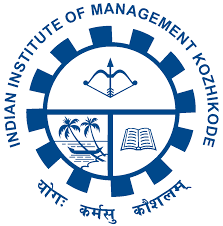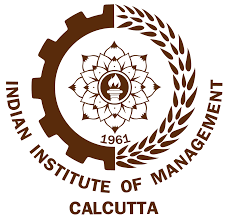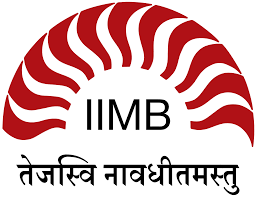
(1).
About MBA Alumni
MBA alumni refer to individuals who have
completed a Master
of Business Administration
(MBA) program from a specific institution. "Alumni" is the plural form
of "alumnus" or "alumna," which refers to a graduate of an
educational institution. Therefore, MBA alumni
are graduates who have successfully completed an MBA program and have earned
the degree.
MBA programs are typically offered by business
schools and universities and are designed to provide students with a
comprehensive understanding of various aspects of business, including management, finance,
marketing, operations,
and strategy. Alumni
of MBA programs often form a network
of professionals who have shared educational experiences and can provide support, mentorship, and career
opportunities to one another.
MBA alumni play an important role in contributing to the business community and society at large. They bring their knowledge, skills, and perspectives into leadership positions in various organizations, drive innovation and change, and often become influential figures in their industries. MBA alumni associations are common, serving as platforms for networking, knowledge sharing, and professional development among graduates of MBA programs.
(2).
Why MBA Alumni?
MBA alumni hold significant value and importance for several reasons which are as under:
| Significant Value | Description |
| Knowledge Sharing and Learning | MBA alumni bring diverse experiences and perspectives to the table. They have been exposed to rigorous academic coursework, case studies, and practical business challenges during their MBA program. This knowledge and expertise can be shared among alumni, creating a continuous learning environment and fostering intellectual growth. |
| Contributions to the Institution | MBA alumni play a crucial role in the development and growth of their alma mater. They often contribute back to the institution through donations, sponsorships, guest lectures, and mentoring initiatives. These contributions help strengthen the MBA program, enhance its reputation, and provide resources to support current and future students. |
| Networking | MBA alumni form a strong professional network that spans different industries and sectors. This network provides opportunities for collaboration, knowledge sharing, mentorship, and career advancement. The connections made during an MBA program can last a lifetime and can be instrumental in accessing job opportunities, partnerships, and business ventures. |
| Mentorship and Guidance | MBA alumni who have progressed in their careers often serve as mentors to current students and recent graduates. They can provide valuable guidance, advice, and support based on their own experiences and insights. Mentorship from alumni can help aspiring professionals navigate the challenges of their careers, make informed decisions, and accelerate their growth. |
| Career Development | MBA alumni often benefit from the reputation and recognition associated with their alma mater. The degree itself is highly regarded in the business world and can open doors to career advancement, leadership roles, and higher salary prospects. Alumni networks frequently offer career services, job boards, and recruitment events tailored to MBA graduates, facilitating career development opportunities. |
(3).
Top MBA Alumni College
India is home to several prestigious business schools that have produced successful MBA alumni. While rankings can vary depending on different criteria, here are some of the top MBA alumni colleges in India, known for their academic excellence, industry connections, and successful alumni networks:
These
business schools are known for their rigorous academic programs, experienced faculty, strong industry ties, and alumni who have excelled in diverse
fields, including business,
entrepreneurship, consulting, and leadership positions in various sectors.
It's
important to note that the choice of a business school should align with individual preferences, career goals, and
specific program strengths. Prospective students should consider factors
such as faculty expertise, curriculum,
industry exposure, alumni network, and placement records when selecting a
business school that best suits their aspirations.
(4).
Sectors of MBA Alumni Impact
MBA alumni in India are making a substantial impact in various sectors, driving growth, innovation, and transformation. Here are some key sectors where MBA alumni are creating a significant impact:
| Social Impact and Development | Manufacturing and Industrial sectors |
| Consumer Goods and Retail | Banking and Financial Services |
| Energy and Infrastructure | Media and Entertainment |
| Technology and Information Technology (IT) | Healthcare and Pharmaceuticals |
| Consulting and Professional Services |
These
sectors represent some of the significant areas where MBA alumni are making an impact in India. Their expertise, leadership, and business acumen
contribute to the growth, competitiveness,
and transformation of these industries,
shaping the economic and social landscape of the country.
(5).
Alumni Success Stories: How MBA Graduates are Making an Impact
India has witnessed several success stories of MBA graduates who have made a significant impact across various sectors. Here are a few notable alumni success stories highlighting how MBA graduates have contributed to India's growth and development:
| Notable Alumni | Description |
| Aditya Puri | Aditya Puri, an alumnus of the Indian Institute of Management, Ahmedabad, served as the Managing Director and CEO of HDFC Bank, one of India's leading private sector banks. Puri's strategic vision and leadership transformed HDFC Bank into one of the most successful and profitable banks in India, known for its customer-centric approach, technological innovation, and robust risk management practices. |
| Arundhati Bhattacharya | Arundhati Bhattacharya, an MBA graduate from the Faculty of Management Studies, Delhi University, became the first woman to lead the State Bank of India (SBI), the country's largest public sector bank. During her tenure as Chairperson, Bhattacharya implemented various initiatives to enhance operational efficiency, digitalization, and financial inclusion. Her contributions to the banking sector earned her widespread recognition and accolades. |
| Ritesh Agarwal | Ritesh Agarwal, the founder, and CEO of OYO Rooms, completed his MBA from the Indian School of Business (ISB). He is widely regarded as one of India's youngest and most successful entrepreneurs. Agarwal's innovative business model revolutionized the hospitality industry by offering affordable and standardized accommodation options to travelers. OYO Rooms expanded rapidly and gained global recognition under his leadership. |
| Deepinder Goyal | Deepinder Goyal, an alumnus of IIT Delhi and IIM Calcutta, co-founded Zomato, a popular online food delivery platform. Goyal's strategic vision and entrepreneurial acumen played a crucial role in scaling Zomato to become one of India's leading food-tech companies. Zomato has expanded internationally and diversified its services to include restaurant discovery, food delivery, and restaurant management software. |
| Sundar Pichai | Sundar Pichai, an alumnus of the Indian Institute of Technology (IIT) Kharagpur and Stanford University, holds an MBA degree from the Wharton School of the University of Pennsylvania. He is the CEO of Google and Alphabet Inc., and under his leadership, Google has expanded its reach and diversified into various innovative areas such as artificial intelligence and cloud computing. |
| Kunal Bahl and Rohit Bansal | Kunal Bahl and Rohit Bansal, both alumni of the Wharton School of the University of Pennsylvania, founded Snapdeal, one of India's largest e-commerce platforms. Snapdeal has played a crucial role in promoting e-commerce in India and empowering small and medium-sized businesses by providing them with a platform to reach a broader customer base. |
| Falguni Nayar | Falguni Nayar, an alumna of the Indian Institute of Management (IIM) Ahmedabad, founded Nykaa, a prominent online beauty and wellness platform. Nykaa has revolutionized the beauty industry in India by offering a wide range of beauty products and services, promoting entrepreneurship among women, and empowering consumers with valuable beauty-related information. |
| Vijay Shekhar Sharma | Vijay Shekhar Sharma, an alumnus of Delhi College of Engineering, founded Paytm, India's leading digital payment platform. Paytm has played a significant role in driving the adoption of digital payments in India, transforming the way people transact and promoting financial inclusion. |
| Raghuram Rajan | Raghuram Rajan, an alumnus of the Indian Institute of Management (IIM) Ahmedabad and the Massachusetts Institute of Technology (MIT), is an acclaimed economist and the former Governor of the Reserve Bank of India (RBI). He has made significant contributions to India's monetary policy, financial sector reforms, and economic development. |
| Chanda Kochhar | Chanda Kochhar, an alumna of the Jamnalal Bajaj Institute of Management Studies and Stanford University, is a renowned banker who served as the CEO and Managing Director of ICICI Bank. She played a key role in the growth and transformation of ICICI Bank into one of India's leading financial institutions. |
| Uday Kotak | Uday Kotak, an alumnus of the Jamnalal Bajaj Institute of Management Studies, is a prominent entrepreneur and banker. He is the founder and CEO of Kotak Mahindra Bank, which has become one of India's largest private sector banks under his leadership. |
| Naina Lal Kidwai | Naina Lal Kidwai, an alumna of the Harvard Business School, is a renowned businesswoman and banker. She was the first woman to become the CEO of a foreign bank in India when she served as the CEO and Country Head of HSBC India. |
| Anand Mahindra | Anand Mahindra, an alumnus of Harvard Business School, is a prominent business leader and the Chairman of Mahindra Group. He has played a pivotal role in the growth and diversification of Mahindra Group, a conglomerate with interests in various sectors such as automotive, aerospace, hospitality, and technology. |
These
are just a few examples of how MBA
graduates in India have made a significant impact across different sectors.
Their success stories inspire and motivate the next generation of business leaders
to create a positive change in society
and contribute to India's growth.
Conclusion
Note
The
collective impact of MBA alumni
extends beyond their individual successes. They drive innovation, influence industry trends, and contribute to economic
growth. The alumni network serves as a valuable resource for knowledge,
connections, and support, benefitting both the alumni themselves and the
institutions they represent. Ultimately, MBA alumni play a vital role in
shaping the future of business and making a lasting impact in their respective
fields.
Also Read:
The
Importance of Networking in MBA Programs
The
Benefits of an MBA Degree for Career Advancement
The
Future of Business Education: Trends and Predictions
The
Importance of Soft Skills in MBA Programs and Business Leadership
Related News
View AllRelated Articles
View AllTrending Articles
View All-
UPMSP 2025 Exam Schedule OUT: Download Class 10 & 12 Time Table
Dec, 13, 2024 Read More -
UK Board Date Sheet 2025 Out: Check Uttarakhand Class 10, 12 Exam Dates
Dec, 12, 2024 Read More -
Top 10 Indian Colleges in QS World University Sustainability Rankings 2025
Dec, 12, 2024 Read More -
AIBE XIX 2024: Dress Code, Important Guidelines & Dos and Don’ts
Dec, 11, 2024 Read More -
HBSE 2025 Exam Dates Out: Download HBSE 10th, 12th Date Sheet PDF
Dec, 10, 2024 Read More -
MAT Exam 2024: PBT, CBT, IBT Schedule, Syllabus, Eligibility, Pattern, Result & Cut Off Details
Dec, 03, 2024 Read More -
CBSE Class 12 Marking Scheme 2025: Grading System, CGPA to Percentage Calculator
Nov, 27, 2024 Read More -
CBSE Class 12 Previous Year Question Papers 2024-25: Download PDFs, Exam Date, Marking Scheme
Nov, 26, 2024 Read More -
CBSE Class 12 Date Sheet 2025 Released: Download CBSE Board 12th Time Table Stream-wise PDF Here
Nov, 26, 2024 Read More -
NIRF Ranking 2024 for Top Management Colleges: List of Top Management Institutes in India
Aug, 21, 2024 Read More
Trending News
View All-
AIBE XIX (19) 2024: Check Exam Day Guidelines, Reporting Time & Live Updates
Dec, 21, 2024 Read More -
UGC NET 2024: दिसंबर सेशन की परीक्षा डेट घोषित, यहां देखें पूरी जानकारी
Dec, 21, 2024 Read More -
VITREE 2025 Results Out: Get Your Score Details Here
Dec, 21, 2024 Read More -
NTA to Discontinue Recruitment Exam Conduct from Next Session
Dec, 21, 2024 Read More -
MICAT 2025 Results Declared: Download Scorecard Now
Dec, 21, 2024 Read More -
TS SSC 2025 Exam Dates Released: Download Subject-wise Time Table Here
Dec, 21, 2024 Read More -
Hurry! CMAT 2025 Registration Closes on December 25 - Apply Now
Dec, 21, 2024 Read More -
Gujarat NEET PG 2024 Round 2 Merit List Released: Get Allocation PDF
Dec, 21, 2024 Read More -
AIBE 19 परीक्षा 2024: महत्वपूर्ण दिशा-निर्देश और क्या करें क्या न करें
Dec, 21, 2024 Read More -
अगले साल NTA में होंगे बड़े बदलाव: कौन सी परीक्षाएं आयोजित करेगी एजेंसी?
Dec, 20, 2024 Read More
Related Universities
View All-
Faculty of Management Studies (FMS), New Delhi
-
Indian School of Business (ISB, Mohali)
-
Indian School of Business (ISB), Hyderabad
-
S P Jain Institute of Management and Research, Mumbai
-
Indian Institute of Management (IIMK), Kozhikode
-
Indian Institute of Management Ahmedabad
-
Xavier School of Management, (XLRI) Jharkhand
-
Indian Institute of Management, Calcutta (IIMC)
-
Indian Institute of Management, Lucknow
-
Indian Institute Of Management–Bangalore (IIM–Bangalore)











 back
back